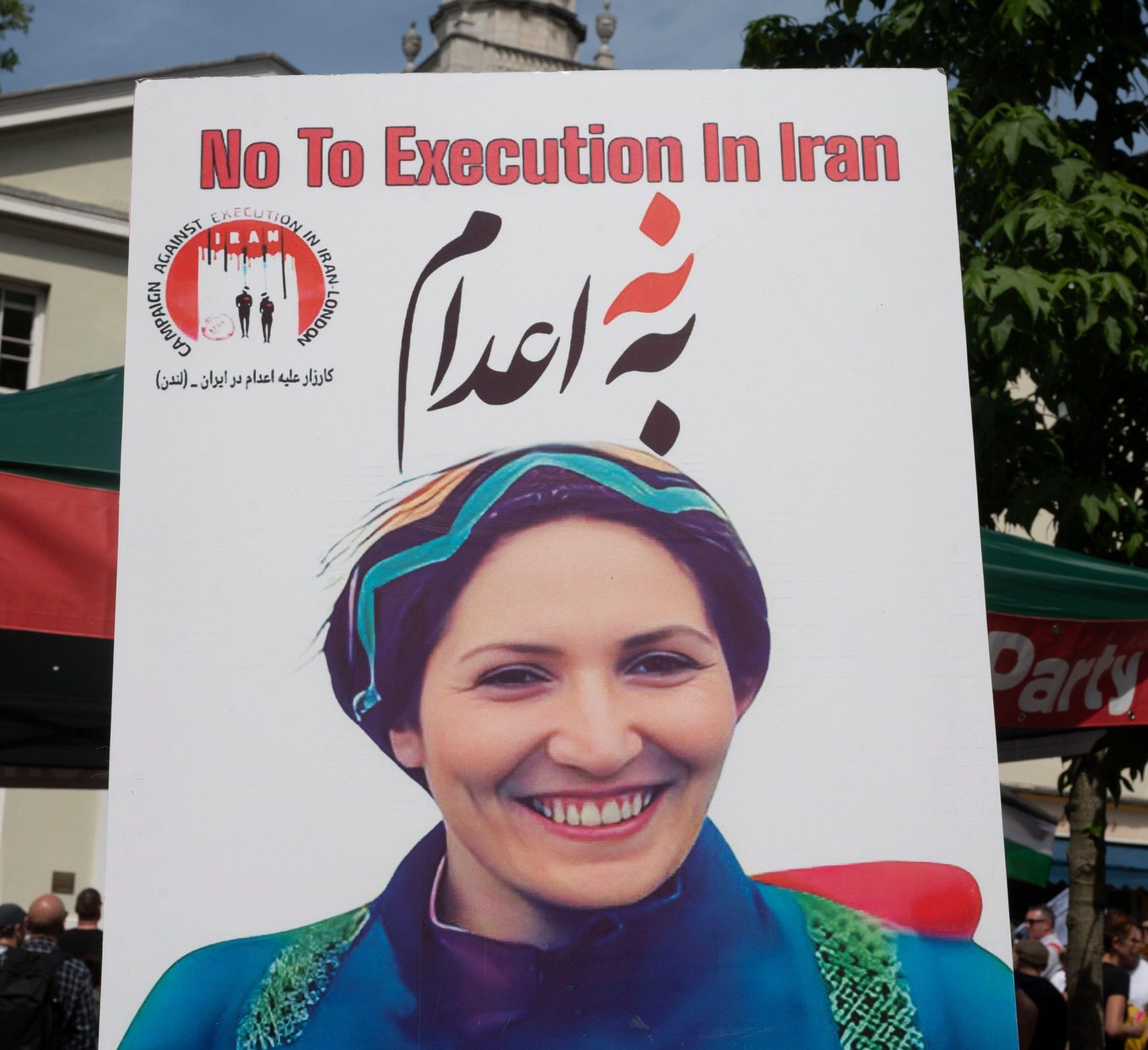Bombarded with news from all angles every day, important stories can easily pass us by. To help you cut through the noise, every Friday Index publishes a weekly news roundup of some of the key stories covering censorship and free expression. This week, we look at a human rights defender sentenced to death in Iran, and a crackdown on media freedom in Guinea-Bissau.
The price of rebellion: Human rights defender sentenced to death in Iran
Iranian human rights defender Sharifeh Mohammadi has had her death sentence confirmed by Iran’s supreme court, for the crime of “Baghi” or “rebelling against the just Islamic ruler(s).”
Having been sentenced to death in July 2024, her sentence was then overturned in October that year due to “flaws and ambiguities” by the same branch of the Supreme Court that confirmed it this week.
Mohammadi, who advocates for women’s rights and labour rights, was first arrested on 5 December 2023 while on her way home from work. She has remained imprisoned ever since, and her family allege that she has been subjected to torture and several months in solitary confinement. Her cousin, Vida Mohammadi, stated that her charges were “not based on justice from the outset but rather on a scenario fabricated by the Intelligence Ministry.”
Access denied: Portuguese media outlets shut down in Guinea-Bissau
The authorities in Guinea-Bissau have ordered the closure of two Portuguese media outlets, LUSA and RTP and the discontinuation of local broadcasts of RTP, ordering their journalists to leave the country.
The authorities did not provide an explanation for their actions but promised to release a statement, which has yet to be shared. While President Sissoco Embaló declined to give a reason for the measure, he reportedly told journalists it is “a problem between Guinea-Bissau and Portugal.”
The act is being viewed as part of Embaló’s broader crackdown on media freedom within the country.
Safety not guaranteed: Hong Kong summons UK envoy after activist offered asylum
Hong Kong has summoned British and Australian envoys after both nations granted asylum to individuals who fled the territory.
Pro-democracy activist Tony Chung announced on the weekend that the UK Home Office granted his asylum claim. He had been one of the youngest people to receive a jail sentence under Hong Kong’s notorious national security law and left the country in 2023.
The day after, former lawmaker Ted Hui announced his successful asylum claim in Australia.
The move comes as part of a campaign of transnational repression by the Hong Kong authorities to silence those who fled for their safety.
The price for reporting: Ice’s continued detention of Atlanta reporter
The American Civil Liberties Union (ACLU) have called for the release of Atlanta journalist Mario Guevara who remains detained by Immigration and customs enforcement (Ice).
Guevara was detained on 14 June 2025 while covering the “No Kings” protest. Shortly after his arrest, prosecutors dropped the criminal charges and an immigration judge granted him bond on 1 July. His family attempted to pay the bond, yet Ice refused to release him and instead transferred him to Gwinnett County on a traffic violation charge. Despite those charges being dropped, Ice refused to release him.
Guevara arrived legally to the USA from El Salvador where he has lived for more than 20 years.
Scarlet Kim, senior staff attorney with the ACLU’s Speech, Privacy, and Technology Project has called for his release, stating “Mario Guevara is being detained solely because of his journalism — specifically his livestreaming of immigration and other law enforcement officials.”
Censored screens: our favourite TV shows are heavily censored in Russia
According to the New York Times, ever since Russia’s invasion of Ukraine in 2022, Russian citizens have been turning to streaming platforms for respite.
However, despite watching the same shows we know and love, what we see and Russians see is entirely different. TV shows such as Just Like That, White Lotus, and The Wire have been censored and edited to remove content featuring trans and LGBTQ+ content, reference or mention of President Vladimir Putin or scenes which show intimacy between men.
Since the start of the war, the Kremlin has ramped up its attack on LGBTQ+ rights. Part of their crackdown includes a “gay propaganda” law targeting activists.






